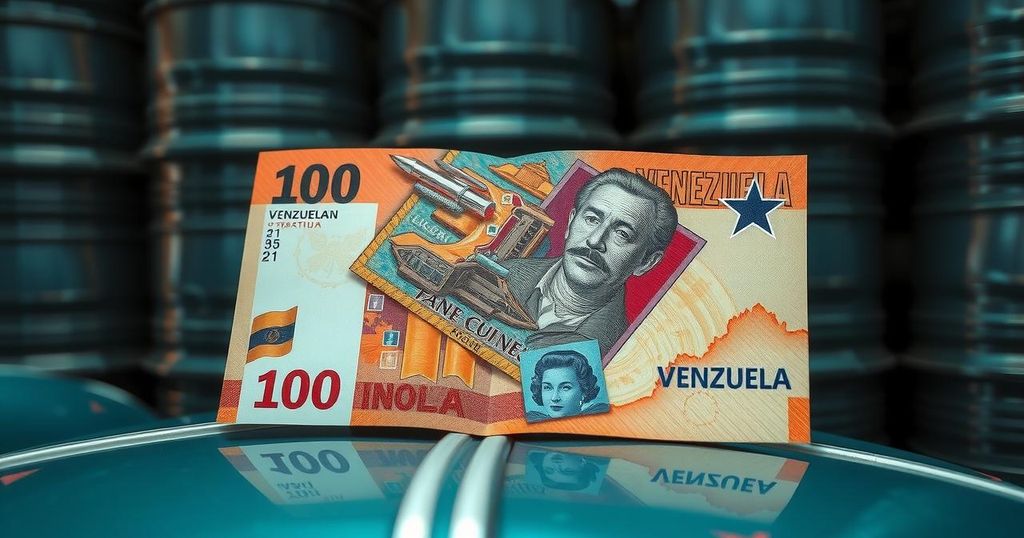Venezuelan Bolivar Faces Sharp Decline Post Secondary Crude Tariff Announcement
The Venezuelan bolivar is plummeting against the U.S. dollar due to the Trump administration’s secondary tariff regime on Venezuelan crude. This economic policy is causing severe currency instability and potential inflation. Analysts predict further downturns along with strained international relations with key oil importers as the situation develops.
The Venezuelan bolivar is experiencing a significant depreciation against the U.S. dollar, primarily as a result of the Trump administration’s introduction of a secondary tariff regime targeting countries that import Venezuelan crude. This policy is exacerbating the country’s existing foreign currency shortages and destabilizing its economy, leading to a rapid decline in currency value.
The implementation of secondary tariffs has precipitated a decline in the bolivar’s stability, which had previously benefited from governmental dollar injections. The bolivar recently surpassed 100 VES per USD, prompting analysts to express concern regarding the negative impact on economic transactions and wages, which remain fixed in the local currency.
Alejandro Grisanti, managing partner at Ecoanalitica, reported a surge in dollar prices even prior to the tariff announcement, indicating further economic distress. He noted, “This tightening of sanctions will lead to a reduction in oil production, an economic recession with a sharp increase in the dollar and inflation.” He emphasized the need to analyze the final licensing regime to better understand the economic impact of these sanctions.
Moreover, the impending sanctions could strain relations between the U.S., China, and Spain, who are significant buyers of Venezuelan oil. This has resulted in shipping delays as oil traders await the full effects of the tariffs. Guo Jiakun, spokesperson for China’s Foreign Ministry, denounced the U.S. actions, arguing that they represent unwarranted interference in Venezuela’s sovereign affairs, and called for the lifting of unilateral sanctions.
The outlook remains uncertain as the fate of these tariffs rests in the hands of the U.S. administration. It is unclear whether President Trump will proceed with the tariffs as announced on April 2, which could drastically alter the economic landscape in Venezuela.
In conclusion, the Venezuelan bolivar is experiencing a downward trend due to the U.S. secondary tariff regime on Venezuelan crude, which is fueling economic instability. Analysts warn of potential increases in inflation and a recession, while international relations could be strained with major oil purchasers. The ultimate impact of these tariffs remains to be determined, as the situation continues to evolve amid ongoing economic challenges.
Original Source: news.bitcoin.com








Post Comment